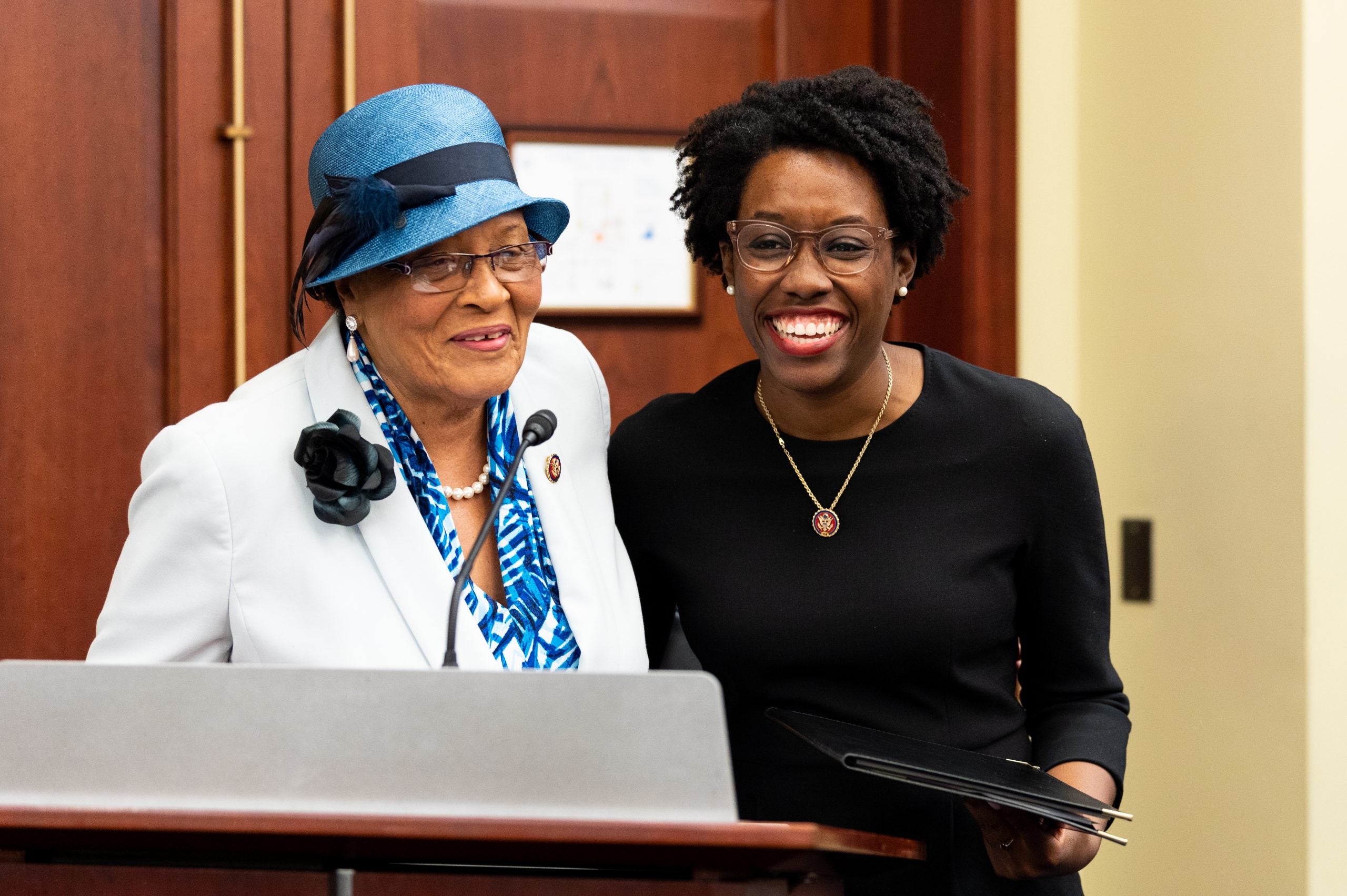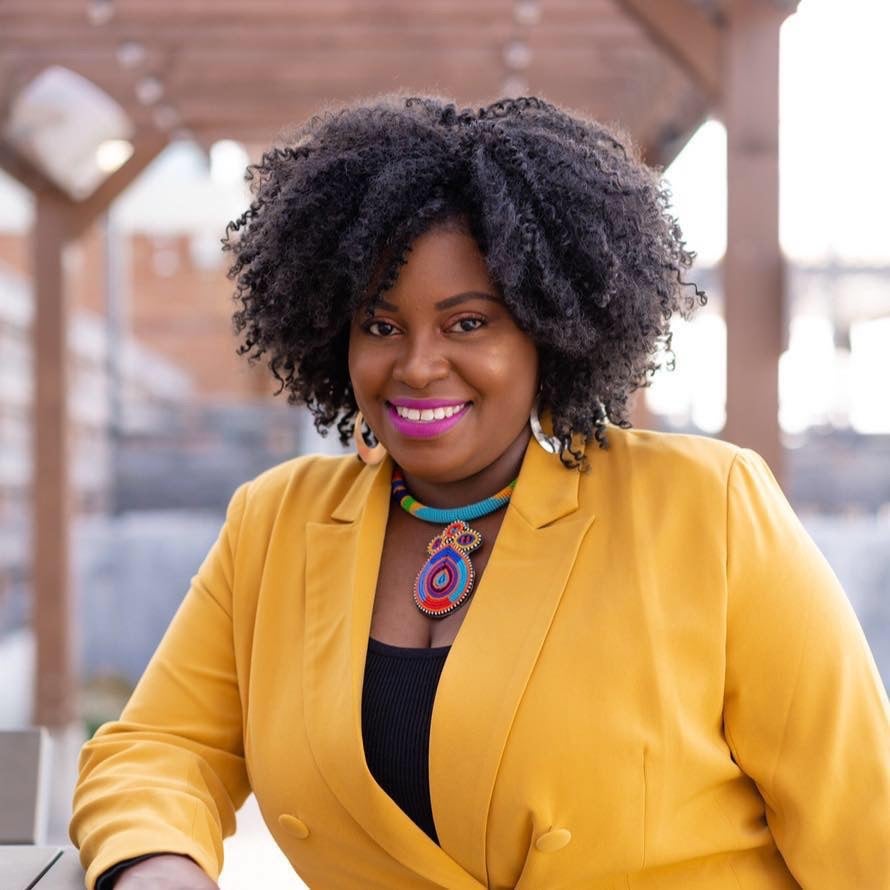Black women are up to four times more likely to die from pregnancy-related complications than their white counterparts. This horrifying statistic has, at this point, become a household fact, following the past few election cycles – including more recently the presidential elections where many candidates have pushed forward their own policy plans to solve the issue.
The Democrats in the House and Senate – particularly the Black lawmakers – have also taken up the issue, so closely tied to the expansive healthcare ideologies that many progressive Democrats hold, and so closely rooted to the history of racial inequality that they are all too familiar with.
In 2018, Sen. Kamala Harris introduced the Maternal Care Access and Reducing Emergencies (CARE) Act, aimed to reduce the racial disparities in maternal mortality and morbidity by creating incentives for medical schools to better educate students about racial bias in maternal health care.
Last year, Sen. Cory Booker (D-N.J.) and Rep. Ayanna Pressley (D-Mass.) joined together to introduce the Maximizing Outcomes for Moms through Medicaid Improvement and Enhancement of Services (MOMMIES) Act to expand coverage to up to a full year after birth for pregnant women covered by Medicaid.
In April 2019, Reps. Alma Adams (D-NC) and Lauren Underwood (D-Ill.) banded together to found the Black Maternal Health Caucus to tackle the issue.
“Racial disparities in maternal health have not improved in three decades. Regardless of educational attainment and income, Black women and their children are at risk. As a Black mother and grandmother, I founded the Black Maternal Health Caucus to ensure that Black women and infants have the rights, respect, and resources to thrive before, during, and after pregnancy,” Rep Adams, who co-chairs the caucus with Underwood said in a statement to ESSENCE.
This year, the Democratic Congress shows no signs of backing down.
On Wednesday, Rep. Donald McEachin (D-Va.) introduced a resolution calling for federal action on the Black maternal mortality health crisis, particularly as it relates to lowering maternal mortality and death rates and putting an end to the racial disparities in the maternal health outcome.
“We’re trying to raise the consciousness of the Congress,” McEachin explained of his strategy is pushing this resolution. “Some folks have been affected deeply by this. Some folks are aware of it, and some folks only hear a little bit of the buzz about it. And so we wanted to put this resolution forward, to start that conversation. We’ll get a vote on it before this Congress is over, I’m sure… and I don’t know what will happen in the Senate, but if we can at least raise the consciousness and the conversation, and elevate it, I think we will have done a good service.”

McEachin’s resolution was co-sponsored by many of the women lawmakers who have already put in work on the matter, including. Reps. Adams, Underwood, and Pressley, as well as Reps. Robin Kelly (D-Ill.), Abigail Spanberger (D-Va.) and Jennifer Wexton (D-Va.).
“I wanted to do my part,” the congressman told ESSENCE. “Right now, Congresswomen Kelly, Underwood and Adams are all doing yeoman’s work in this area. And so, I wanted to put my shoulder to the wheel with them, to try to elevate this issue.”
“It is ridiculous in 2020…that it was safer to have a baby 25 years ago, it was safer for me to have my child than it would be for my child to have a baby now. When you think at least 700 women sometimes as high as 900 women are dying a year in the United States from having babies, that’s ridiculous,” Rep. Kelly told ESSENCE in a separate conversation. “We’re a developed country, we have modern medicine and there’s no excuse.”
Kelly crafted two major bills to address the issue, including the Helping Medicaid Offer Maternity Services (MOMS) Act of 2019, which seeks to incentivize states to extend Medicaid coverage or up to a year after birth, as well as the Mothers and Offspring Mortality and Morbidity Awareness (MOMMA’s) Act which seeks to reduce maternal deaths through standardizing data collection and reporting, establishing national obstetric emergency protocols through a federal expert committee, improving access to culturally competent care throughout the care continuum, ensuring dissemination of best-shared practices and coordination amongst maternal mortality review committees, and of course, expanding Medicaid.
This is especially a pressing issue for the Illinois congresswomen, as in her state, Black women are dying at 6 times the rate, and where 75% of those deaths are preventable.
“Women that want to be moms, should be able to be moms [and] they shouldn’t lose their lives and their families shouldn’t lose them,” she added.
The congressman noted that he is the father of three adult children, two of whom are women, echoed Kelly’s sentiments.
“I want [my daughters] to have access to the best health care, maternal care, that this country can give them. I’m not a grandparent yet, and not in a rush to become one, but when that day comes, I want them to be able to have children and survive the experience and have my grandchildren survive the experience,” he added.
Prior to introducing the resolution, McEachin was already showing his hand, having invited Erica McAfee, the president of Sisters in Loss, a non-profit and accompanying podcast which encourages Black women to speak out about pregnancy, infant loss, and infertility, to be his guest at the State of the Union last week.
Sisters in Loss and McAfee’s own investment in Black maternal health care started out from McAfee’s own personal experiences, having lost two babies—one at birth and one halfway through the pregnancy.
Due to complications in her third pregnancy, her son, who lost vital oxygen during his birth, was born with cerebral palsy. In the same breath, she also was rendered unable to have more children.

“Culturally, [Black women] don’t really share these things. And I want to give us space and a platform where we can share more openly and then also really talk about the stigmas that plague us when it comes to sharing our stories around loss and infertility challenges,” she told ESSENCE. “So, I created a podcast and a community surrounding that… where we share those stories. We share the good, the bad, the indifferent, whatever that journey to motherhood looks like for you.”
The podcast was launched back in 2017, and McAfee acknowledged that the work was difficult, getting other women to open up about their experiences. However, she believes that thanks to Michelle Obama sharing her own story to motherhood in her bestselling memoir Becoming, where the first lady detailed her miscarriage as well as her journey to conceiving her daughters through IVF, more women started to want to share.
And while the podcast is focusing on sharing stories and shutting down the stigma that encourages silence, the nonprofit is working towards helping women become advocates – particularly as it pertains to having access to a doula. The nonprofit provides doula training, to turn “pain into purpose” as McAfee puts it and support other moms as they are going through labor, especially when those mothers cannot afford their own doulas. The nonprofit has also been doing a lot of work in Virginia, where McAfee is from, hoping to expand Medicaid to include doula care and to certify doulas in the state so that they can be paid for the services they provide to Medicaid patients.
And there’s still so much more to be done. However, this is a good start—the right start—McAfee acknowledges, and she is happy and optimistic that members of Congress, like Underwood, Adams, Kelly, Pressley and of course, McEachin, have been pushing the issue, noting that if the issue is resolved for Black women everyone stands to benefit.
“At the end of the day, it comes down to systemic racism. This is how the healthcare system was built. It was built on the backs of Black moms and babies. And it’s the reason why we need to have these conversations. We need to do more training,” McAfee added. “We need to make sure that legislatively… that we’re removing all the bias that’s out there and that we are really pushing bills through the House, through Congress that represent everyone. Because [we all] know that if it works for us, if it works for Black moms and babies, it’s going to help everybody else.”
